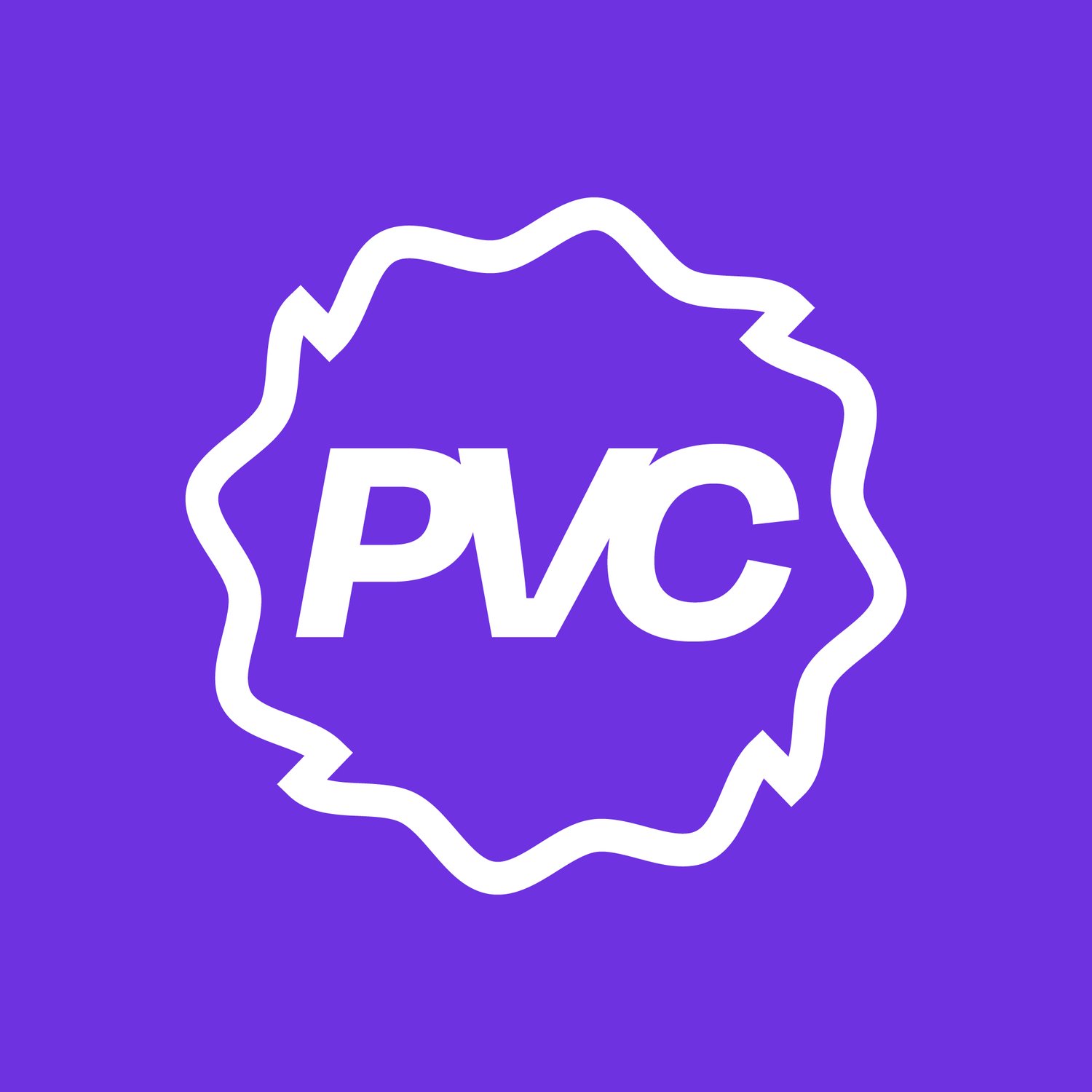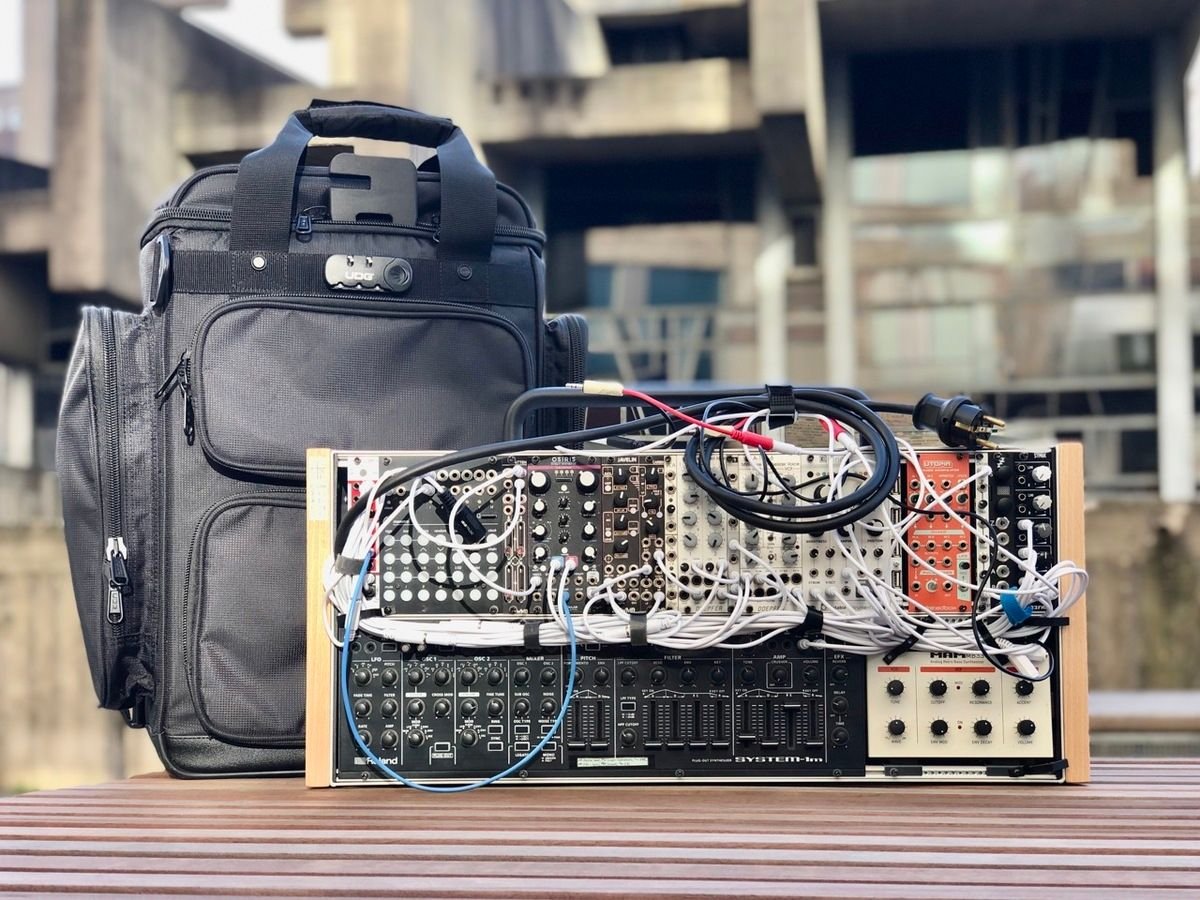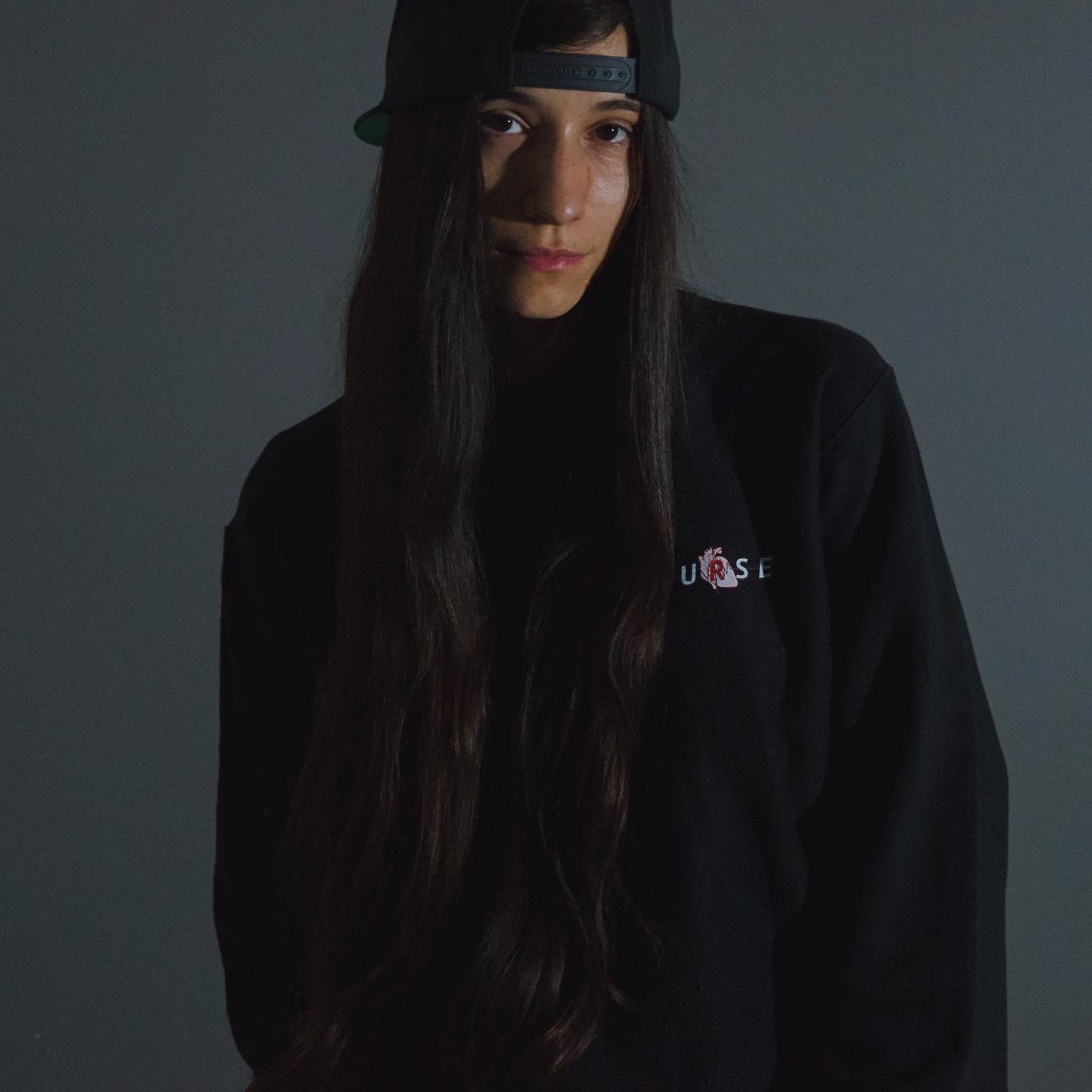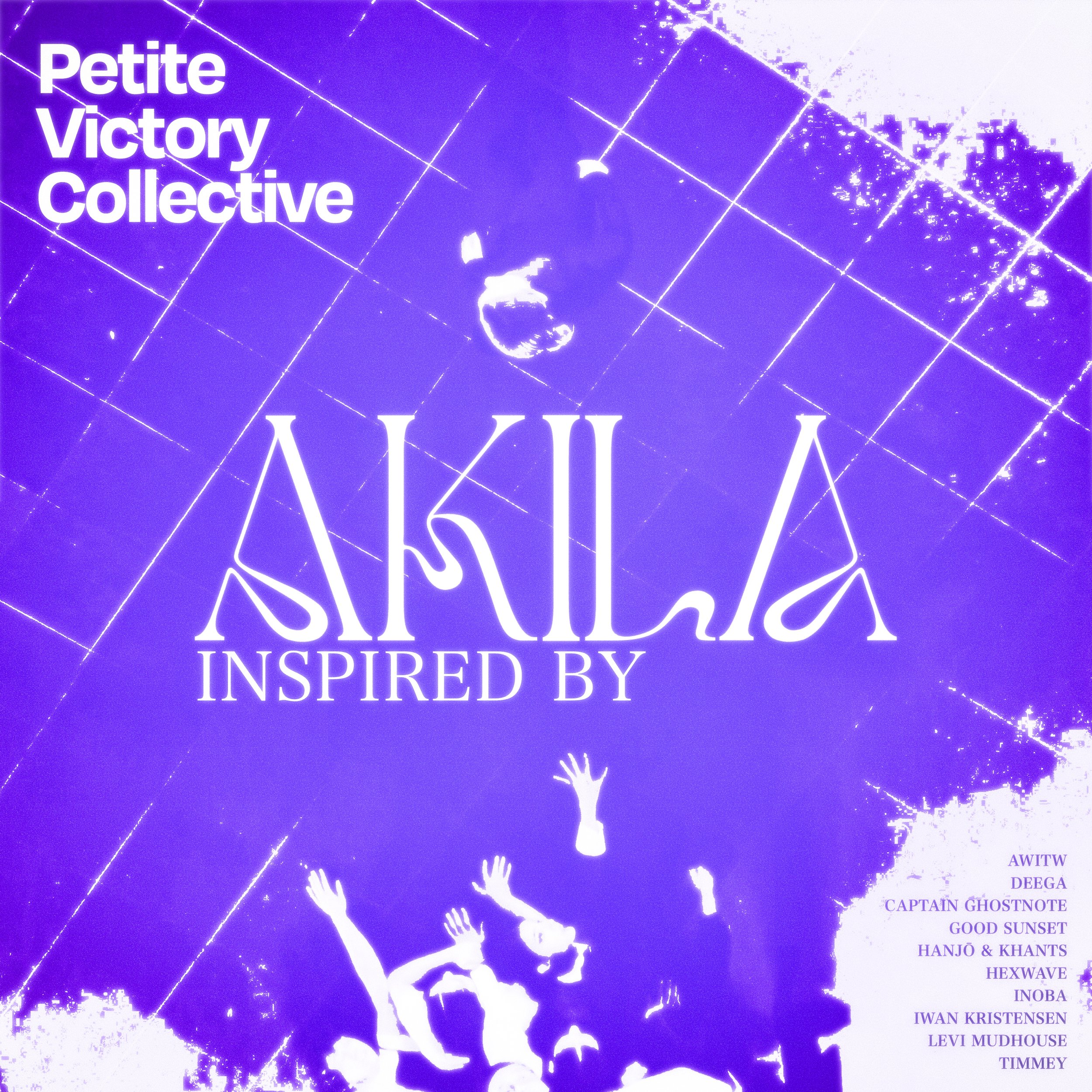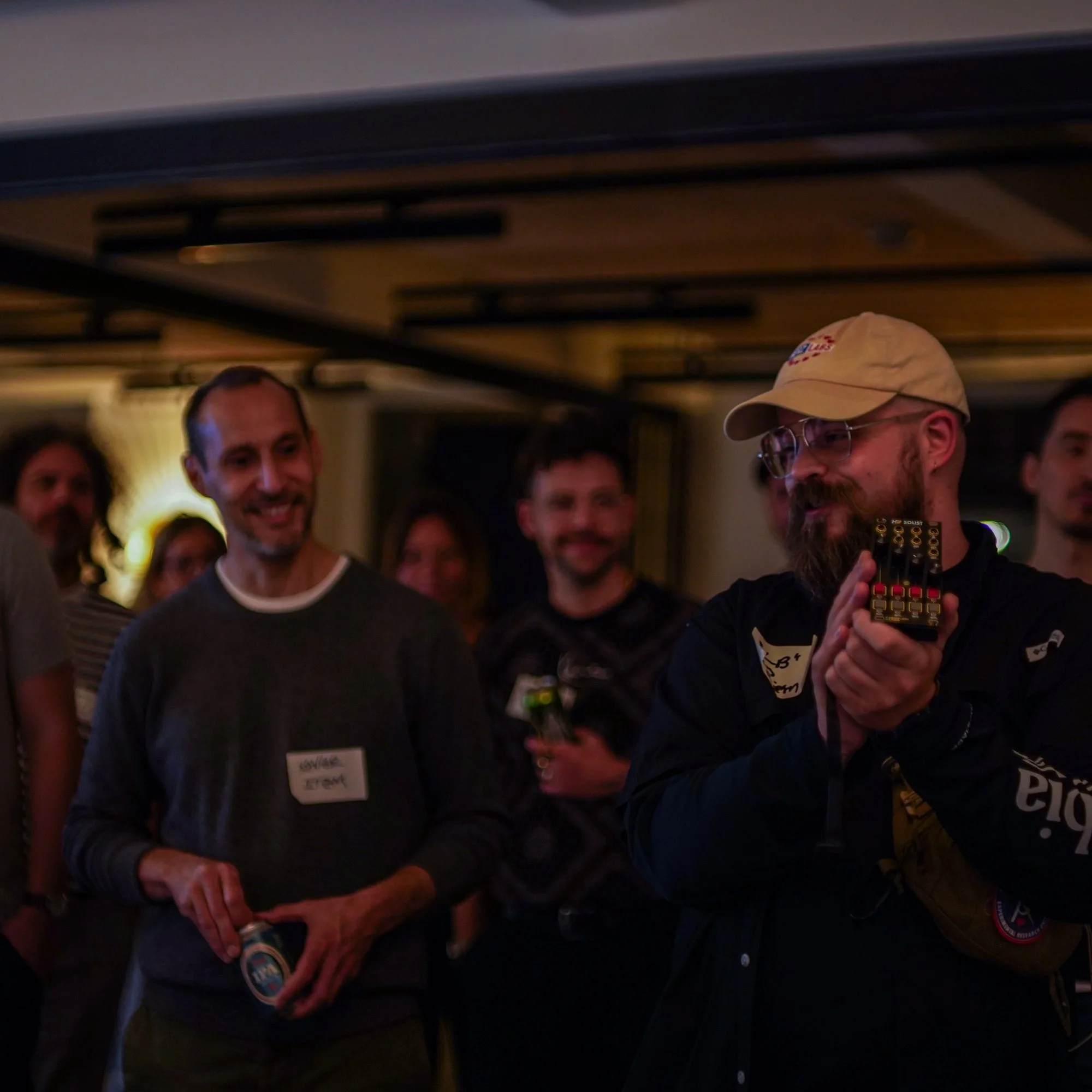Get to know — Ma Foom Bey!
We’re beyond excited to share that the PVC crew has been graciously invited to join the next ModularMadness event, taking place on November 23rd in Cologne. To mark the occasion, we’re taking a step back to dive into the roots of this electrifying series and chat with the mastermind behind it all - Ma Foom Bey, also known as Jörgen.
Get ready to discover the creative force driving ModularMadness forward:
Hi Jörgen, I’m super happy to have you here with us today! For those not knowing you yet, can you present yourself to our readers?
Thanks for having me. My name is Jörgen, also known as Ma Foom Bey — a DJ, DAWless performer, and event host. I'm based in Cologne, Germany. I got into electronic music as a teenager in the late '80s and have been actively involved in the culture in various ways ever since.
I recently looked you up on the internet to get to know you a bit and do my homework before coming here ;) I’d love to know how growing up near Frankfurt shaped your musical tastes, especially during the explosion of electronic music in the '80s?
I think music in the '80s was more of a local scene than it is today. I was fortunate to grow up near Frankfurt, where there was already a very active electronic music scene, with places like Talla's Techno Club and later Sven Väth's Omen, as well as labels and record stores. This environment was incredibly inspiring, and it was easy for me to pursue my interest in electronic and independent music. That certainly wasn’t the case everywhere at the time. Electronic music and its related culture were still a niche, and it was unimaginable to me that it would grow into the global phenomenon it is today.
What was it about synth sounds and genres like Techno, EBM, and Italo-Disco that initially captivated you?
At a time when most music, especially mainstream, was created using traditional rock methods, electronic music felt new, refreshing, and boundless. It was triggering my love for synthesiser sounds. Besides, the power and intensity of the music were incredibly catchy to me.
In your latest interview with G.A.S Newsletter you talked about some early parties at Dorian Grey. Can you describe the atmosphere of the first techno and acid parties you attended at Dorian Gray? How did they influence your perception of music?
I started going to the Techno Club events at Dorian Grey and Omen in 1988. The events were still largely influenced by EBM, but they also hosted acid parties. One unique thing about Dorian Grey was its location at Frankfurt Airport — an incredibly surreal place at night, by the way — which meant it could stay open 24 hours. Most clubs at that time had to close around 3 a.m., so the usual constraints of time from the outside world became less relevant. It was easy to lose yourself in the music and the amazing sound system there. What I learned from those experiences is that some music really only works in the context of the dance floor, and especially in that atmosphere.
Did you have any specific artists or tracks that were particularly influential in sparking your passion for electronic music?
Of course, I could list dozens of great tracks and artists that represent a special moment in music and time, but I’d like to approach it from a different angle. I’ve always found artists inspiring who have developed a wide range of music over a long period, crossing genres, exploring new territories, and constantly reinventing their craft. Some of the artists who inspired me in this way, and whom I’ve followed for a long time, include Al Jourgensen, Underworld (starting with their work as Freur with Conny Plank), Sven Väth, Ralf Dörper, WhoMadeWho, Henrik Schwarz, and Einstürzende Neubauten, among others.
What was it like to be in Berlin during the '90s as the techno scene was just starting to take off?
The dynamics of techno and party culture were massive at this time in various cities, not just in Berlin. However, in East Berlin, this movement created an open-minded, positive, and almost unregulated environment, with practically unlimited venues and a creative crowd from both East and West Germany, as well as beyond, coming together. It felt like anything was possible back then. It's hard to put into words, and there are entire books and documentaries trying to capture that era. But what I can say is that I’ve never experienced anything like it, even though I’ve lived in cities like New York and London, and have been to techno events in Goa, Koh Samui, Tokyo, Mumbai, Detroit and many others.
How did the underground culture and club scene in Berlin compare to Frankfurt at the time?
Well, Frankfurt was actually ahead of Berlin when it comes to techno for quite some time. The city already had a well-established techno and party scene in the '80s. Everything changed when the Berlin wall came down, and the city became a global melting pot for techno.
As a DJ in Berlin, what were some of the most memorable gigs or experiences you had? Did any of them push you to develop new techniques or change your approach?
The game-changer for me was when Native Instruments released Traktor. Suddenly, it was possible to mix any track you downloaded. It might seem like nothing today, since this is how most DJs work now, but back then it was a huge shift, especially for those of us who didn’t have a big budget for vinyl and equipment.
Berlin in the '90s is often described as a place of freedom and experimentation. How did the city's atmosphere impact your own creative journey?
What I learned during that time is that when you find people who share the same passion, you can be incredibly creative and build amazing things. Don’t wait for others to make your ideas a reality. That mindset, by the way, is what led to Modular Madness.
You've been in Cologne for 20 years now. How does the city's electronic music scene compare to those of Frankfurt and Berlin? How has your role as a DJ evolved since moving to Cologne?
In general, compared to Frankfurt and Berlin, Cologne is a more laid-back city. The music scene is open and welcoming, but smaller than in Berlin. Finding gigs for DJs has also become harder, as music is now so accessible.
What motivated you to explore DAWless music, and how does it differ from the usual DJ patterns and techniques?
I’ve always been interested in pushing the boundaries of DJing — for example, using drum machines in my sets, creating my own edits, and so on. During COVID, I got even more into DAWless and Eurorack setups. I appreciate the directness of hardware machines, without the need for menus, screens, or a mouse. To me, using a computer feels more like office work and creative process itself is just as important as the outcome, and using hardware is less of a necessity but a luxury I’m happy to afford. Performing DAWless in a club environment is very challenging. In the end, people often don’t even realise you’re playing live. You’re competing with fully produced and mastered tracks, and you have far fewer options than in a DJ setup with hundreds of tracks ready to go for any situation. Still, playing live and mastering that challenge brings a great deal of joy.
What inspired you to start organizing parties with Discobude and host events like Modular Madness? What do you aim to achieve through these initiatives?
The more I got into DAWless and Eurorack, the more I wanted to connect with people who shared the same interests. But at that time, there wasn’t much happening in Cologne, so I decided to start something myself. That’s how Modular Madness began, and it really struck a chord. There was a lot of interest and encouragement, and it quickly developed into a live event for music enthusiasts, featuring interesting acts from both Cologne and internationally. I really enjoy the dynamics of each event, discovering new music across genres, and meeting great people. Discobude is a different approach. I teamed up with four old friends to throw techno parties in our own off-location space, just to have a good time with old and new friends.
Balancing Life and Passion As an innovation manager, do you find that your work in engineering overlaps with your creative process in music?
To me, electronic music is the sweet spot where technology and creativity meet. As an engineer, I find the technical aspects fascinating, but I often have to remind myself to embrace the freedom of creativity and let the flow happen naturally.
What advice would you give to young DJs and musicians who are just starting out in electronic music? What should they embrace, and what should they be cautious of?
Find people who share the same passion and work together to grow and achieve your common goals.
Are there any upcoming projects or events that you're particularly excited about?
Unfortunately, the next Modular Madness will be the last one at Die Bank, a fantastic location with an amazing collective that I’ve really enjoyed collaborating with. I’m already in talks about a new venue, and I’m excited to see how the format will evolve.
How do you see the future of electronic music evolving, especially with new technologies and techniques emerging?
I’m sure AI will revolutionize the way we produce and consume music, especially in the mainstream. However, I’m also confident that people will continue to gather to create and experience live music, particularly since gear and knowledge have never been more affordable and accessible. It is going to be great!
I'd like to close this interview by thanking you for the kind invitation to join the next Modular Madness event. It means a lot to know that our artists will be in such caring and capable hands. Wishing the entire team a fantastic event and an amazing sonic experience!
